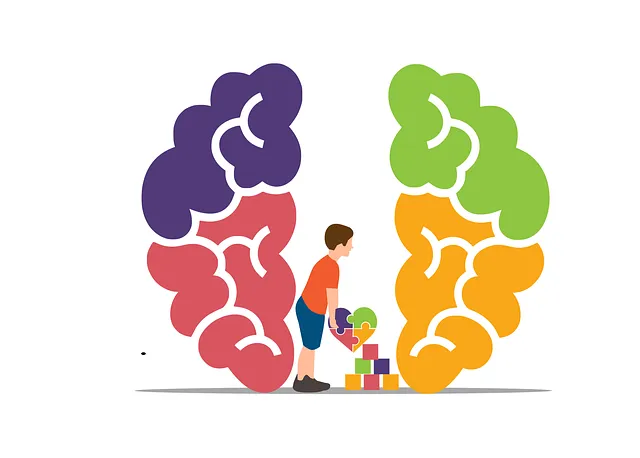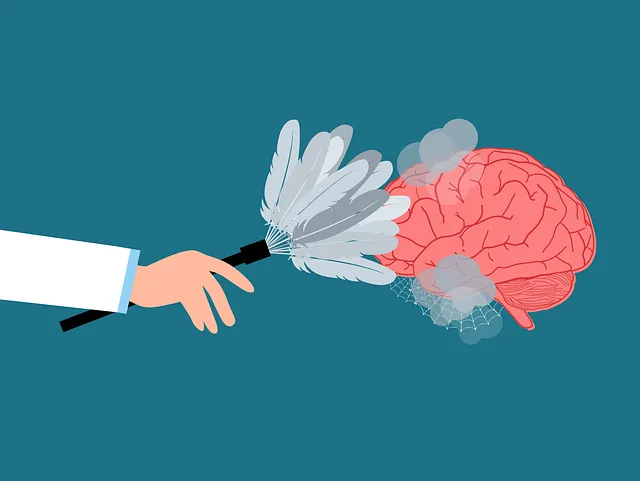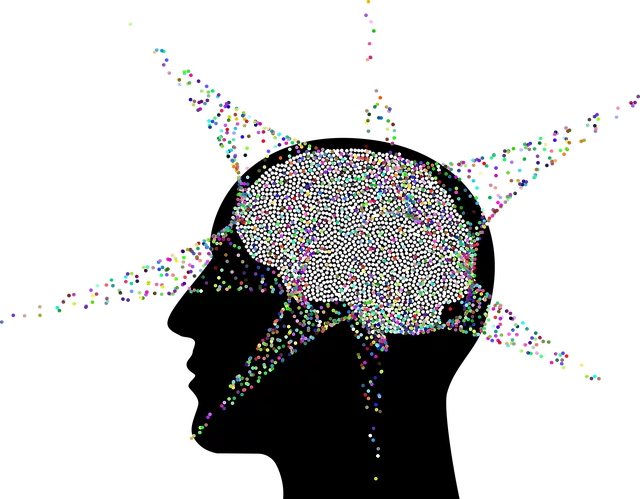The Resilience Framework Method (RFM), offered at Kaiser Permanente Wheat Ridge, is a structured approach to enhance resilience and well-being through three core components: Relating (social connections for support), Growing (personal development & goal setting), and Meaning (finding purpose in activities). RFM includes Social Skills Training, empowering individuals to build supportive networks. Mental health centers like Kaiser Permanente Wheat Ridge, with positive reviews, provide safe spaces, tailored therapies, workshops, risk assessment training, and outreach programs to break down stigma and support diverse populations. They offer holistic resilience-building exercises for adults, children, and adolescents, improving emotional well-being and reducing anxiety, as evidenced by favorable Kaiser Permanente mental health center reviews. Implementing RFM at home through stress reduction methods like mindfulness or nature walks can significantly improve mental health and well-being, while healthcare providers can use it to manage high-pressure situations and improve job satisfaction.
“Resilience is a powerful tool in navigating life’s challenges, and the Resilience Framework Method (RFM) offers a structured approach to fostering it. This article explores RFM and its significance in building resilience, with a focus on the role of mental health centers like Kaiser Permanente Wheat Ridge, which has pioneered integrated resilience-building programs. We’ll delve into various exercises, their benefits, and provide practical tips for implementing RFM in daily life, inspired by successful initiatives at Kaiser Permanente Wheat Ridge, as per mental health center reviews.”
- Understanding RFM: An Overview of the Resilience Framework Method
- The Role of Mental Health Centers in Promoting Resilience
- Kaiser Permanente Wheat Ridge: A Case Study on Integrating Resilience Building Exercises
- Types of Resilience Exercises and Their Benefits
- Implementing RFM at Home: Practical Tips for Daily Resilience
Understanding RFM: An Overview of the Resilience Framework Method

The Resilience Framework Method (RFM) is a structured approach designed to enhance resilience and well-being, especially in individuals facing challenges or seeking personal growth. Developed by experts, this method aims to equip people with effective strategies to navigate life’s obstacles and foster positive mental health. At Kaiser Permanente mental health center reviews Wheat Ridge, RFM has gained prominence as a valuable tool for improving overall psychological flexibility and coping mechanisms.
This framework focuses on three key components: Relating, Growing, and Meaning. ‘Relating’ emphasizes the importance of social connections and building strong relationships, which are essential for emotional support and positive thinking. The ‘Growing’ aspect encourages personal development through setting goals, learning new skills, and fostering a growth mindset. Lastly, ‘Meaning’ involves finding purpose and engaging in activities that bring fulfillment, contributing to a sense of contentment and overall mental health policy analysis and advocacy. Social Skills Training plays a pivotal role within RFM, enabling individuals to enhance their interactions and build a supportive network, which is crucial for resilience-building exercises.
The Role of Mental Health Centers in Promoting Resilience

Mental health centers play a pivotal role in fostering resilience within communities, and Kaiser Permanente Wheat Ridge stands as a prominent example. These centers act as safe havens, providing essential services that cater to individuals’ mental well-being. Through specialized programs and therapies, they offer tailored support to help people navigate life’s challenges and build emotional strength. The center’s commitment to excellence is often reflected in positive Kaiser Permanente mental health center reviews Wheat Ridge, highlighting the impact of their interventions.
Beyond individual therapy, these facilities contribute to community resilience through public awareness campaigns and development initiatives. They organize events and workshops aimed at educating residents about mental health, breaking down associated stigma. Moreover, integrating risk assessment for mental health professionals into their practices ensures that those working in this field are equipped to handle complex cases effectively. The implementation of community outreach programs further solidifies the centers’ role, fostering connections and providing much-needed support to diverse populations.
Kaiser Permanente Wheat Ridge: A Case Study on Integrating Resilience Building Exercises

Kaiser Permanente Wheat Ridge, a renowned mental health center, serves as an excellent case study for integrating resilience-building exercises into healthcare practices. Recognizing the growing importance of emotional well-being promotion techniques, the center has incorporated innovative programs to enhance patient experiences and outcomes. These exercises focus on teaching individuals positive thinking skills and stress management strategies, empowering them to navigate life’s challenges more effectively.
Through various workshops and sessions, Kaiser Permanente Wheat Ridge offers a holistic approach to mental health care. Their resilience-building initiatives target not only adults but also children and adolescents, ensuring that every patient has access to tools for emotional resilience. By fostering a culture of mental well-being, the center aims to improve overall community health, as evidenced by numerous favorable Kaiser Permanente mental health center reviews from satisfied clients.
Types of Resilience Exercises and Their Benefits

Resilience exercises encompass a range of activities designed to strengthen an individual’s ability to cope with stress, adversity, and challenging situations. These exercises are crucial components of programs offered at Kaiser Permanente mental health centers, such as those in Wheat Ridge. One popular type is Emotional Regulation training, which teaches individuals to recognize and manage their emotions effectively. This skill is vital for reducing anxiety and promoting overall well-being, as reviewed by many satisfied patients at the center.
Additionally, Social Skills Training enhances resilience by fostering healthy relationships and communication. These exercises help individuals navigate social interactions with confidence, improving their support network and providing a buffer against stress. Many Kaiser Permanente mental health center reviews highlight the positive impact of these training programs on clients’ ability to manage anxiety relief and build lasting resilience.
Implementing RFM at Home: Practical Tips for Daily Resilience

Implementing RFM (Resilience, Flexibility, and Mindfulness) at home can be a powerful tool for building resilience, especially in today’s demanding world. The Kaiser Permanente mental health center in Wheat Ridge offers valuable insights into maintaining mental well-being, emphasizing that creating a daily practice is key to managing stress and preventing burnout. Incorporate simple yet effective Stress Reduction Methods into your routine; this could include mindfulness meditation, deep breathing exercises, or even short walks in nature.
For healthcare providers, who often face high-pressure situations, Burnout Prevention Strategies are essential. Regularly practicing RFM can help manage work-related stress and improve overall job satisfaction. Additionally, Conflict Resolution Techniques learned through the Kaiser Permanente program can be applied at home to navigate challenging personal interactions, fostering better relationships and a sense of calm. By dedicating just a few minutes each day to these practices, individuals can reap significant benefits for their mental health and overall resilience.
Resilience is a vital tool in navigating life’s challenges, and the Resilience Framework Method (RFM) offers a comprehensive approach to building this crucial skill. As demonstrated by the case study of Kaiser Permanente Wheat Ridge, integrating resilience-building exercises into healthcare settings can have profound effects on individuals’ well-being. By understanding RFM and its various benefits, mental health centers like Kaiser Permanente can enhance their services, empowering patients with effective coping mechanisms. Adopting these strategies at home, as suggested in the practical tips, enables individuals to foster resilience daily, ensuring they are equipped to face life’s uncertainties with greater fortitude.






